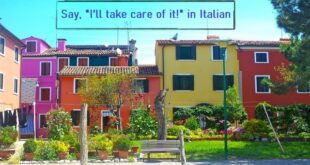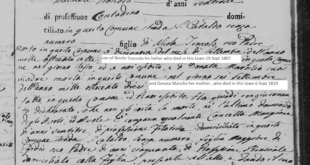When the Representative Assembly of the National Education Association recently voted in favor of replacing Columbus Day with Indigenous Peoples’ Day, it offered precious little by way of justification.
Here is the full text of its resolution: “The National Education Association believes that the history of colonization needs to be recognized and acknowledged in every state. To do so, the Association believes that the name of the current holiday known as ‘Columbus Day’ should be renamed and recognized as ‘Indigenous Peoples’ Day’ in recognition of the early indigenous peoples who were living in the United States before colonization by European settlers.”
And here is the scant bit of rationale it chose to make public: “As an education association, recognizing, observing and celebrating factual history is important to maintaining our academic integrity.”
It sounds admirable enough until you start examining the actual facts.
Native-American activists and their revisionist allies would have us believe that Columbus was a racist slave trader and genocidal maniac, but none of that squares with reality.
Columbus ventured forth in peace, with the goal not of conquering a new world but of establishing a faster trade route to the Indies. He formed an alliance with the first indigenous peoples he encountered and protected them from cannibalistic neighbors who had been raiding their lands and kidnaping their women and children.
His militant actions against the more warlike natives were taken only in self-defense and included the enslavement of prisoners of war, a common practice back then among natives as well as Europeans.
Most tellingly, he incurred the wrath of his men by insisting they treat the natives “very well and lovingly” as dictated by the Spanish monarchs. When he meted out punishment to the Spanish settlers for failing to do so, he was arrested and sent back to Spain in chains, surrounded by a fog of lies that persists to this day.
Had all the Europeans who followed in Columbus’ wake embraced his compassionate lead, the history of the native populations would be dramatically different. But that’s not why we celebrate him. He earned his fame by embarking on a voyage so daring that it has no equal in recorded history: a truly mindboggling act that required all the determination, bravery, ingenuity and skills that a human being can possibly muster.
In the process, of course, he paved the way for the colonization of North and South America, and therein lies the rub.
What happened to the native populations of those two continents during the centuries of conquest that followed is beyond reprehensible, and I understand and support their ancestors’ fight to carve out a day of their own to celebrate their cultures and acknowledge the countless offenses committed against them.
But to try simultaneously to wipe Columbus off the face of the cultural and historical map is the equivalent of blaming the person who brilliantly created and then politely opened a door for all the crimes committed by those who since passed through it.
In so doing, modern-day opponents have mounted an assault not only against the truth but also against a cherished hero of another oft-maligned ethnic group.
Treated as sub-humans when they first arrived on these shores and relentlessly portrayed as mobsters for decades thereafter, Italian Americans have long looked up to Columbus as the one countryman who the entire nation could be proud of. It seems beyond cruel to now demonize him, especially given the magnitude of his accomplishments, the flimsiness of the case against him and the emotional stake our community has in the debate.
Isn’t it funny how the wheel turns? The bullied have now become the bullies, embarking on a slash-and-burn campaign fueled by rage and misinformation. And rather than calming the two sides down, helping them separate fact from fiction, and brokering a kind-hearted resolution, our nation’s teachers have sided with the bullies and against factual history. What kind of lesson is that to teach our children?
The above appears in the December 2019 issue of the print version of Fra Noi. Our gorgeous, monthly magazine contains a veritable feast of news and views, profiles and features, entertainment and culture. To subscribe, click here.
 Fra Noi Embrace Your Inner Italian
Fra Noi Embrace Your Inner Italian







